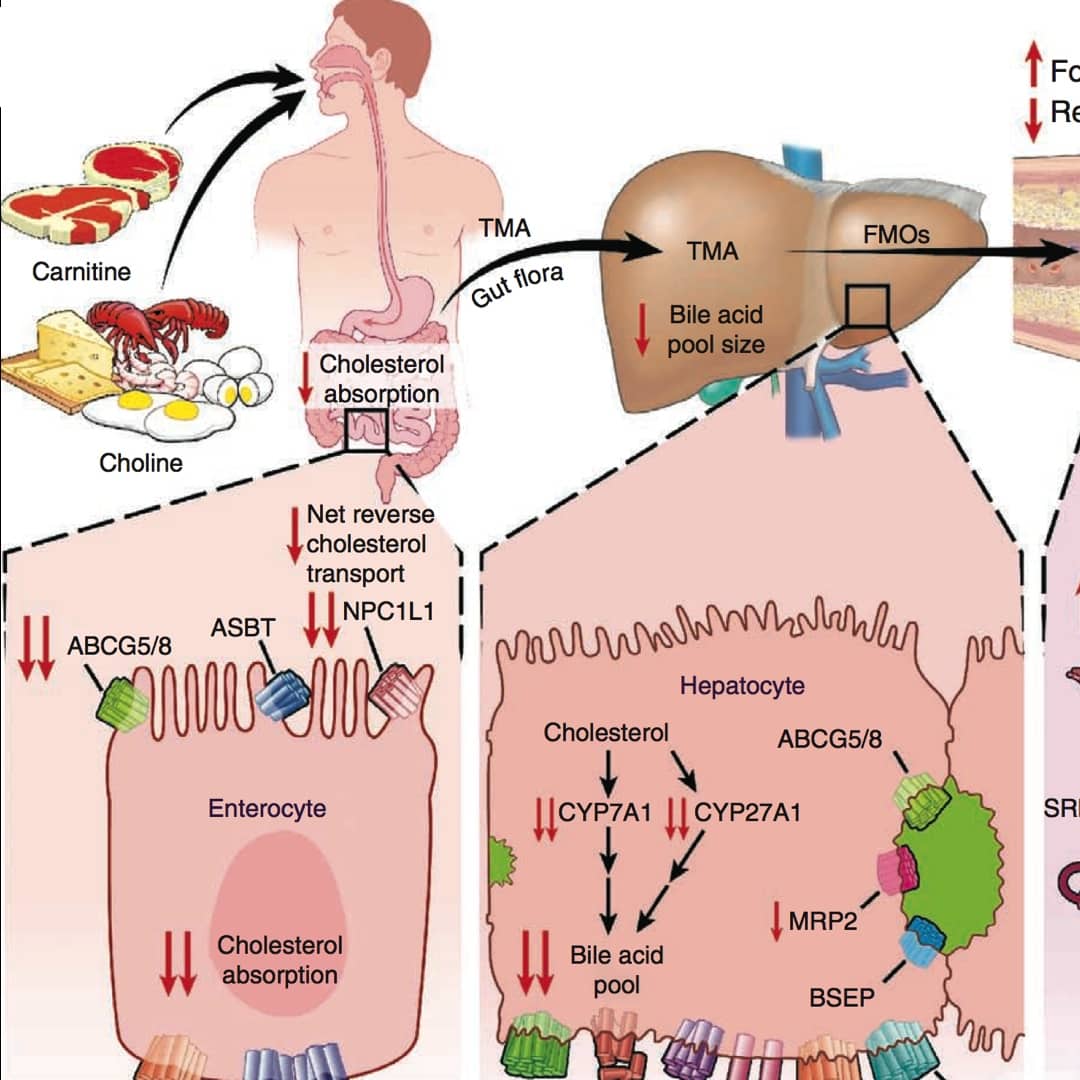Please take a look at yet another study (“L-Carnitine in the Secondary Prevention of Cardiovascular Disease: Systematic Review and Meta-analysis”) (http://www.medpagetoday.com/upload/2013/4/12/jmcp_ft88_4_2.pdf)…is this a case where the substance (LCar) itself is beneficial, but the by-products of its beakdown by gut flora are not? Or… And if so, how does one balance or even evaluate the balance between the two apparently contradictory effects.
Thanks…
foxfyr / Originally Posted in Carnitine, Choline, Cancer and Cholesterol: The TMAO Connection
Answer:
Thanks for the question foxfyr! We’ve known for over 20 years that large doses of carnitine given intravenously in people within hours of a heart attack may have an antiarrhythmic effect, presumably by facilitating glucose oxidation in the failing heart muscle. Because it’s given directly into the bloodstream, it enters our body the way our own body creates it (bypassing the gut). Only when carnitine enters the gut could that toxic TMAO be made by the gut bacteria as I detail in the video.
In the context of a heart attack, even carnitine supplements given orally could help the patient live through that critical first post-MI period by lowering risk of ventricular arrythmia (even if it might be contributing to further plaque progression elsewhere in the heart). Hopefully we will all never be placed in that situation by preventing the heart attack in the first place by decreasing our intake of carnitine, choline, cholesterol, and saturated fat found predominantly in animal foods and junk.
